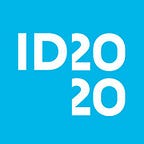World Refugee Day: acknowledging needs and opportunities
With World Refugee Day around the corner, we want to take a moment to reflect on last Saturday’s TEDxKakumaCamp event, the first ever TEDx event hosted in a refugee camp. The speakers inspired the audience with stories of resilience, and called on everyone in the room to help change the narrative around refugee camps.
“We are people beyond the label,” Nomzamo Mbatha reminded the crowd. A UNHCR Ambassador and actress, Mbatha hoped that the event would “shine the light of the everyday refugee.” Refugees certainly confront unique obstacles, but Mbatha’s point was a very important one — everyone faces hardship, and while refugees are doubtless no exception, this should not define their narrative. These individuals are due considerably more credit for their resilience and perseverance.
These qualities are exemplified in Yiech Pur Biel, a former refugee at Kakuma Camp and speaker at Saturday’s event. After being separated from his entire family at age 9, Biel arrived at Kakuma Camp with nothing, but eager to make something out of himself. Biel explained, “When I was still a child, I lost everything.” However, he steered the audience away from the usual narrative when he continued, “without a struggle, life doesn’t change.”
This theme of resilience is reflected in the lives of countless refugees. It is also what led Biel to qualify for the 2016 Summer Olympics.
Stories such as Biel’s are made possible by the strong communities — brought together by circumstances that one could only expect to induce despair — which serve to uplift and empower people in them. As Halima Aden, a trailblazing fashion model who lived in Kakuma Camp until age 6, described, her former home was a place of acceptance, a community where everyone works to empower one another with the “opportunity to flourish, to hope, to dream, to be successful.”
For many refugees, however, these opportunities remain few and far between. Josphat Nanok, Governor of Turkana County, explains that refugees who travel to Kakuma Camp often arrive empty handed. “They come here with totally nothing, they have lost everything, and many of them are children.” Aden reiterated the same message: “Being a refugee taught me that one can be stripped of everything.”
This can mean losing family, belongings, shelter, and even proof of identity. For some, these losses are obstacles that will eventually be overcome through perseverance, hope, and the support of their community. But for others, this loss can be paralyzing. Without proof of identity, many refugees are further stripped of even the most fundamental services and opportunities, such as education, social assistance, and healthcare. Proof of identity is also required for refugees to qualify for resettlement through UNHCR, open a bank account, and obtain work authorization. Without the fundamental right of being able to prove their identity, many refugees are left stranded and invisible.
Given the opportunity, however, refugees have immense potential to contribute positively to their communities, as demonstrated by a wide array of stories and successes presented at the TEDxKakuma event.
At ID2020, we understand that providing this opportunity will require cross-sector collaboration. It will require listening to and working intimately with those who our efforts seek to empower, and delivering solutions based on the needs that these parties express.
During the event, Nomzamo Mbatha urged the audience to “lift the borders of the mind and begin to see each other as one, as global citizens.” In order to see each other as one, we all have to be visible. Digital identity, powered by technology, and accessible to all, will equip even the most vulnerable populations with the tools and opportunity to overcome their own, complex challenges.
